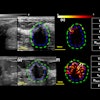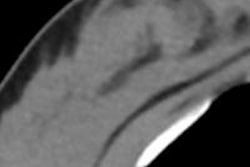Dear AuntMinnie Member,
Skipping a mammography screening for even just one year can increase a woman's chance of developing late-stage breast cancer, according to a new study we're highlighting in our Women's Imaging Digital Community.
Wisconsin researchers identified a group of about 1,500 women who presented with breast cancer between 2002 and 2008. They gathered data on how many of the women missed mammography screening exams, and examined the association between missed tests and the patient's cancer stage at diagnosis.
Women who had regular mammography exams presented with earlier-stage disease compared to those who missed screenings, and women with late-stage disease missed the largest number of appointments.
As most studies on mammography do these days, the new research figures into the debate over how often women should receive mammography screening. Other recent studies indicate that more women are skipping appointments due to confusion over the 2009 breast screening guideline changes from the U.S. Preventive Services Task Force ... a development that could have serious health consequences, according to this new study.
Read the article by clicking here, or visit our Women's Imaging Digital Community at women.auntminnie.com.
PET/MRI for liver lesions
In other news, add liver lesion characterization to the list of clinical indications that could be promising for PET/MRI, according to a new study by German researchers in our Molecular Imaging Digital Community.
Researchers compared PET/MRI on an integrated whole-body scanner with PET/CT in a group of 70 patients with confirmed solid tumors. They found that PET/MRI produced higher diagnostic confidence for liver lesion characterization, and it was able to visualize very small lesions due to MRI's excellent soft-tissue contrast. Read more by clicking here.
While you're in the community, check out a story on a new PET radiopharmaceutical for Alzheimer's disease that was approved by the U.S. Food and Drug Administration (FDA) late last week. By approving Vizamyl from GE Healthcare, the FDA has given clinicians access to a second PET agent for detecting buildup of beta amyloid in the brain (the first one is Amyvid from Eli Lilly).
Beta-amyloid accumulation has been tied to the development of Alzheimer's disease; the big question faced by users of Vizamyl and Amyvid is what happens next, as there still isn't a truly effective therapy. Read more by clicking here, or visit the community at molecular.auntminnie.com.



















